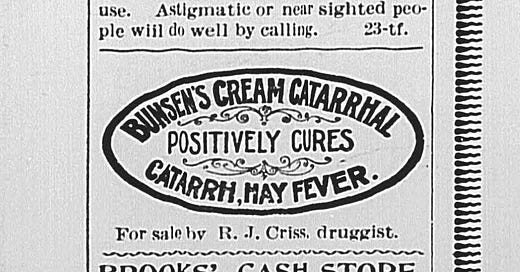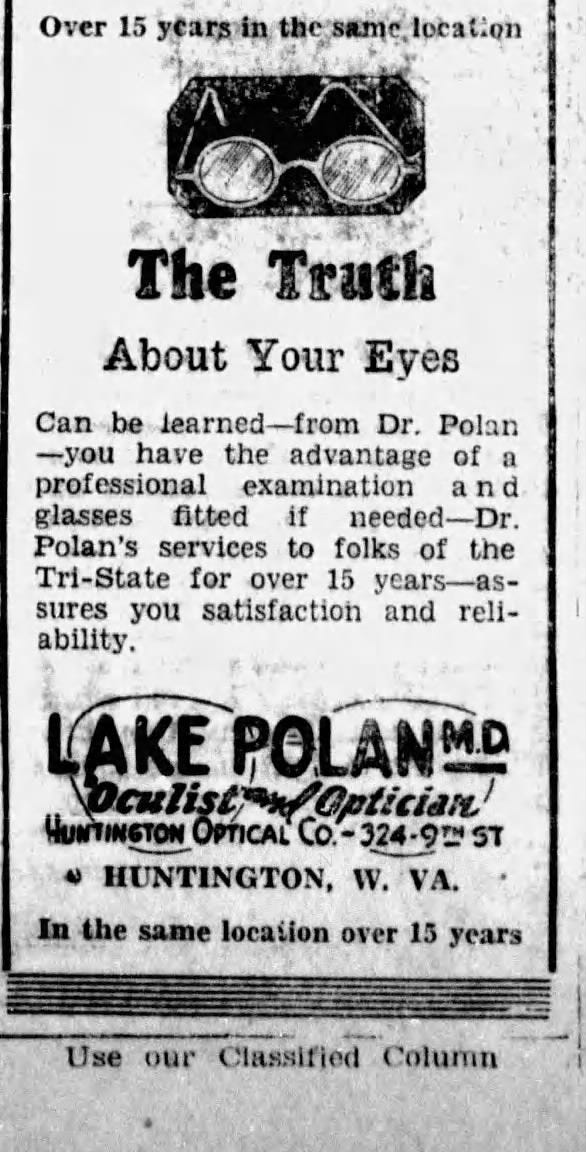The most frequent thing I find, when I go looking for old family documents in public archives, are advertisements. Starting out, they are these for my great-grandfather’s services as an optician. And maybe also still a peddler, if we accept the dictionary definition of peddler: “a person who goes from place to place selling small items.” Eye glasses are small goods, after all.
Or this one, in the Big Sandy News-Recorder Fri, May 16, 1930:
I love the move from peddler to traveling optician, to someone who has operated from the same location for over 15 years. I love the deep grounding in my home place this establishes. (It’s an Appalachianism to say you aren’t “from around here” until you have a parent buried in a child born in the area, in which case we became “from around here” in Lake’s generation.)
In my first round of research, I skipped all the ads, put them aside as unimportant to the larger story, but now I see that they really are the larger story: they are the move from immigrant to community member to patriarch of a family* that still has close ties to, and many descendants in, Huntington.
What things were you initially tempted to ignore when you started writing your family stories, friends, and how have they proven more important than you expected?






I love these ads. My father, your grandfather, worked for his father as an optician for a while. I guess getting into the lens business during WWII was a somewhat logical path.
*Lake wasn't the only patriarch of a Huntington family of Polans, or maybe Joseph was the patriarch of all the West Virginia Polans... there are many ways to say it, and many ways to make someone feel I've said it the wrong way. If I have, forgive me, family!